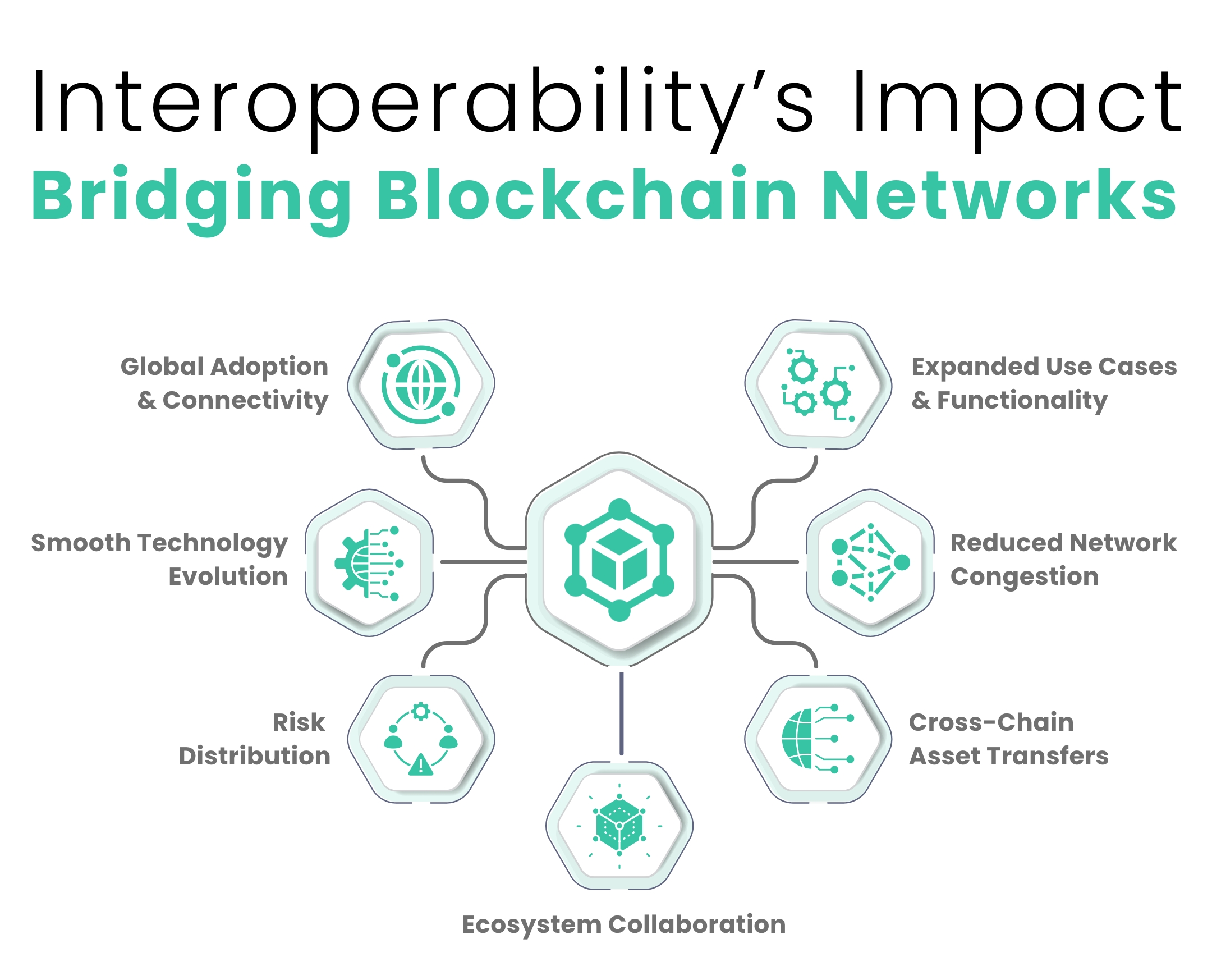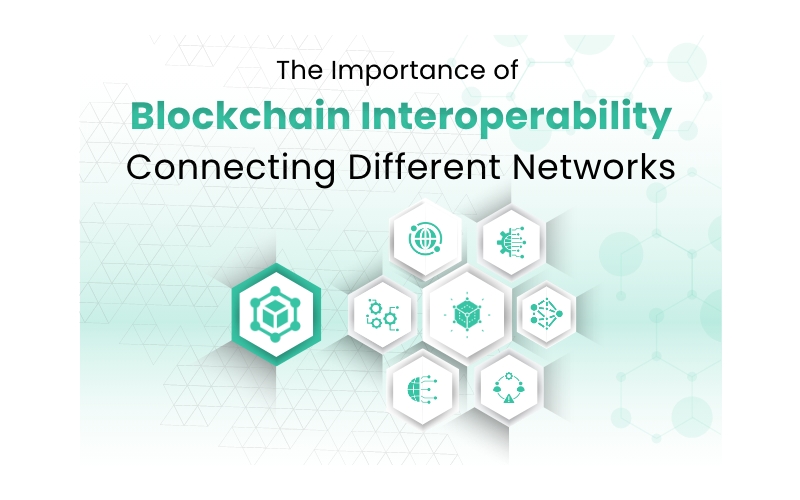The Importance of Blockchain Interoperability: Connecting Different Networks
Blockchain interoperability refers to the ability of different blockchain networks to communicate, share data, and work together seamlessly. It plays a key role in the widespread adoption and advancement of blockchain technology. This is why interoperability of blockchains connecting different networks is important.
CORBLOKS helps enterprises build cross-platform distributed applications (dapps) that run programmatically without an intermediary or centralized system. Our team of experts helps build secure blockchain DAPPs that ensure secure data storage and immutability.

Expanded Use Cases and Functionality: Different blockchains have been developed with different characteristics and capabilities to suit specific use cases. Interoperability allows these functions to be integrated across different networks, creating new opportunities for innovative applications. For example, assets from one blockchain can be used on another, enabling more complex and versatile decentralized applications (dApps).
Reduced Network Congestion: If multiple blockchain networks are interoperable, they can distribute the load during times of heavy traffic. This avoids network congestion, high gas bills, slow transaction times, and a more user-friendly experience for participants.
Cross-Chain Asset Transfers: Due to interoperability, you can transfer assets from a blockchain to another blockchain without the need for an intermediary. This is particularly related to the distributed finance (Defi) space because the user can move assets seamlessly between different platforms and protocols.
Ecosystem Collaboration: Blockchain projects can collaborate more effectively when networks can communicate. This will enable the sharing of knowledge, resources and innovation, fostering a more vibrant and collaborative blockchain ecosystem.
Risk Distribution: Relying on a single blockchain network could expose users to this particular vulnerability. Interoperability spreads risk across multiple networks, making the entire ecosystem more robust and resilient to single points of failure.
Smooth Technology Evolution: Blockchain technology is fleetly evolving, and new agreement mechanisms, protocols, and features are constantly being developed. Interoperability allows new technologies to be integrated without dismembering the being blockchain networks.
Global Adoption and Connectivity: As blockchain technology becomes more widespread, having a unified ecosystem of interoperable blockchains can lead to encyclopedic and efficient tax and data processing.
In summary, blockchain interoperability is key to realizing the full potential of blockchain technology. It enables collaboration, scalability, passive resource transfer, and data sharing, leading to more productive applications in a strong and effective blockchain ecosystem. As technology continues to develop, the need for social interaction will only grow, resulting in more connected and less consistent natures.
